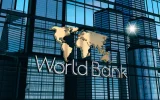In a ‘turn of events’ and waking up to the reality that Nigerians have almost moved on from the reality of COVID-19, Nigeria’s Federal Government Wednesday, said that the wearing of face masks in public places is no longer compulsory as efforts are being to ease up COVID-19 restrictions across the country.
Head of the Technical Secretariat, Presidential Steering Committee on COVID-19, Dr Muktar Muhammed, who said this in Abuja, added that decision on the final relaxation of COVID-19 measures will be taken after Easter.
Chairman of PSC and Secretary to the Government of the Federation, Boss Mustapha, had also announced the Committee has reviewed situations around the world and applies such to the situation in Nigeria.
He had also announced that PSC has revised the International Travel Protocols, which should come into effect on Monday, April 4, 2022.
According to him, in-bound fully vaccinated passengers arriving in Nigeria would no longer be required to take a pre-departure PCR COVID-19 Test.
Data from the National Primary Healthcare Development Agency has revealed that a total of 12,139,797 persons have been fully vaccinated in Nigeria, while 18,942,020 persons have been partially vaccinated.
Background
In April 2020, FG announced that the wearing of face masks in markets across the country would be compulsory.
The Minister of Industry, Trade and Investment, Richard Adeniyi Adebayo said, “I need to stress that, while there is an undeniable need for markets to be opened on some days for people to restock on household supplies, it is most important for the set protocol to be complied with during the process.
“The use of face masks and hand sanitisers on market days are non-negotiable to limit the spread of the virus until the scourge blows over.”
At the 31st joint national briefing of the Presidential Task Force (PTF) on COVID-19, in May 2020, Boss Mustapha said that wearing of face mask is now mandatory for all Nigerians.
He said the use of face mask is not an option but a directive backed by law and called on security agencies to enforce compliance.
Mustapha added that the use of face mask as one of the precautionary measures to stop the spread of COVID-19 was included in the law signed by President Muhammadu Buhari which must be enforced.
He also called on the 36 governors of the federation to ensure compliance within their jurisdictions.
Now, the Nigeria Centre for Disease Control (NCDC) director-general, Ifedayo Adetifa says using face masks indoors or in high-risk settings like public transport is still recommended but wearing a face mask in outdoor places is discretionary.
Adetifa stated that the Presidential Steering Committee (PSC) on COVID-19 was leveraging available evidence, such as the continuous downward trend of COVID-19 positive cases in the country, to revise the travel protocol.
“As vaccination coverage rises in countries, relaxation of COVID-19-related restrictions, including mask mandates, is increasing. However, the recent COVID-19 surges in many countries have led to questions of whether face masks should be encouraged or required, and for how long,” said Adetifa.
“Proper mask use reduces the probability of transmission between an individual who is infectious and one who is susceptible to infection and helps protect those with a high risk of infection and severe disease.”
While other countries are lifting the last set of restrictions, Adetifa said, “We cannot copy what countries do because of important differences. For example, the UK, in addition to having better surveillance and greater capacity for sequencing in place, has vaccinated over 70 per cent of its population and even introduced second booster doses for some at-risk populations.”
Adetifa pointed out that data continued to inform the decision-making, and the PSC on COVID-19 would continue to keep Nigerians informed as it had done with the new COVID-19 travel protocol changes.
But, Nigerians have already stopped using face masks even in public places. For instance, it was compulsory for drivers of commercial vehicles to use face masks and compel their passengers to do same, but that has become history since mid-2021.
















